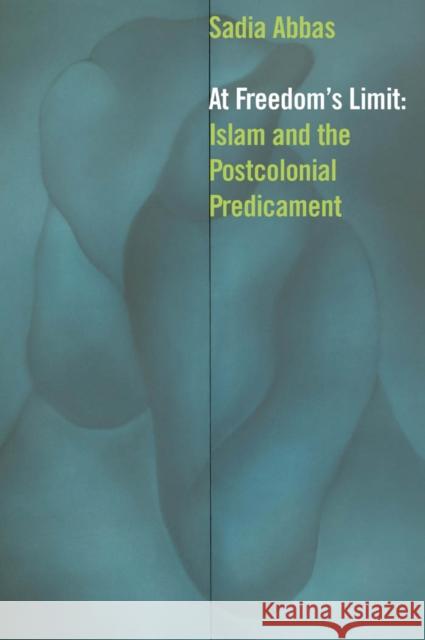At Freedom's Limit: Islam and the Postcolonial Predicament » książka
At Freedom's Limit: Islam and the Postcolonial Predicament
ISBN-13: 9780823257850 / Angielski / Twarda / 2014 / 272 str.
At Freedom's Limit: Islam and the Postcolonial Predicament
ISBN-13: 9780823257850 / Angielski / Twarda / 2014 / 272 str.
(netto: 243,54 VAT: 5%)
Najniższa cena z 30 dni: 256,24
ok. 22 dni roboczych.
Darmowa dostawa!
The subject of this book is a new "Islam." This Islam began to take shape in 1988 around the Rushdie affair, the collapse of the Berlin Wall in 1989, and the first Gulf War of 1991. It was consolidated in the period following September 11, 2001. It is a name, a discursive site, a signifier at once flexible and constrained--indeed, it is a geopolitical agon, in and around which some of the most pressing aporias of modernity, enlightenment, liberalism, and reformation are worked out. At this discursive site are many metonyms for Islam: the veiled or "pious" Muslim woman, the militant, the minority Muslim injured by Western free speech. Each of these figures functions as a cipher enabling repeated encounters with the question "How do we free ourselves from freedom?" Again and again, freedom is imagined as Western, modern, imperial--a dark imposition of Enlightenment. The pious and injured Muslim who desires his or her own enslavement is imagined as freedom's other. At Freedom's Limit is an intervention into current debates regarding religion, secularism, and Islam and provides a deep critique of the anthropology and sociology of Islam that have consolidated this formation. It shows that, even as this Islam gains increasing traction in cultural production from television shows to movies to novels, the most intricate contestations of Islam so construed are to be found in the work of Muslim writers and painters. This book includes extended readings of jihadist proclamations; postcolonial law; responses to law from minorities in Muslim-majority societies; Islamophobic films; the novels of Leila Aboulela, Mohammed Hanif, and Nadeem Aslam; and the paintings of Komail Aijazuddin.











